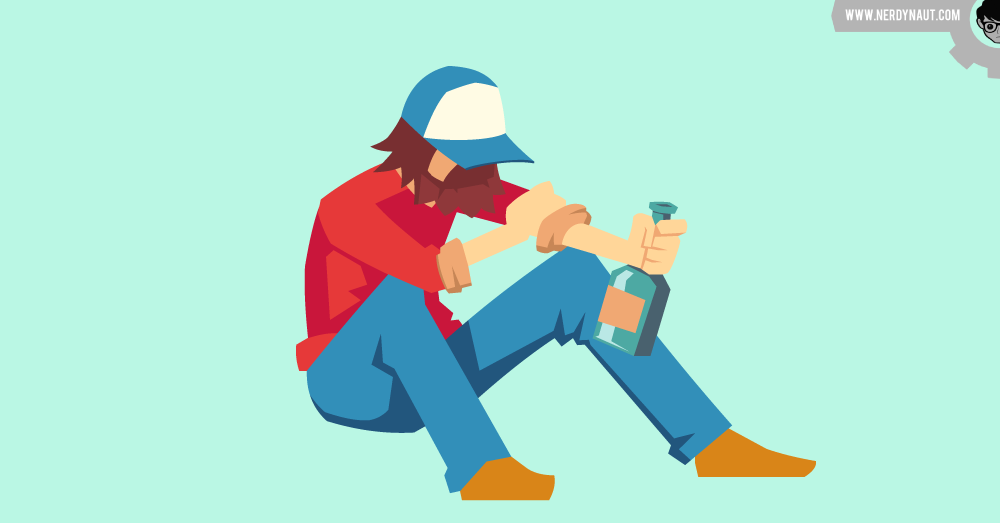
Depression is a prolonged feeling of sadness, accompanied by other forms of distorted moods like feeling hopeless, worthless, lonely and suicidal. It comes in different forms, including Major Depressive Disorder, Persistent Depressive Disorder, Psychotic Depression, Postpartum Depression, Seasonal Affective Disorder, and Bipolar Depression.
Alcoholism, on the other hand, is the most serious form of drinking, referring to a person considered an alcoholic, with his or brain dependent on alcohol for survival. They often have withdrawal symptoms if they do not drink alcohol for a while. It also has different levels of severity.
People tend to have an uncertain relationship with alcohol during troubling times. It will be better to drink mindfully, especially in this post-lockdown period. It will help decrease the chances of depression.
Depression and Alcohol have been closely related over the years, as most persons suffering depression turn to alcohol to feel better. However, this only works for a little while and they are back to their depressing state. To constantly remain high and enjoy the pleasurable feeling, they continue to go back to alcohol for survival until their brains become dependent on it. Alcohol abuse is known to be rampant among those who suffer depression and in the long run, it backfires, as it has a sedative effect on the brain which slows the body down and continuous use can prolong the duration and severity of the depression. Being an alcoholic could also affect one’s family and career, which would further worsen depression and increase the feeling of hopelessness and suicidal thoughts.
How do you know if you are suffering from these two conditions? The symptoms below explain what to expect, and if you are familiar with most of the listed symptoms, then you need to visit Vegas Sober Living Homes. At Vegas Sober Living Homes, you get to build life-long friendship and get support from people who care and understand.
Symptoms of Alcoholism
1. A Lot of Time Spent Drinking
A person with alcoholism does not know when to stop drinking, so they spend a lot of time drinking, regardless of how it affects their life, home, and career. The NIAAA research defines high-risk drinking for women as more than 3 drinks a day and more than 7 in a week. For men, it is more than 4 drinks in a day and more than 14 drinks in a week
2. Continually Craving Alcohol
Stress and emotional upheavals often trigger alcohol craving, but when it becomes continuous, it might be an addiction. Being addicted to drinking alcohol will make you continuously crave it, with a strong desire to drink and at this point, you would likely do anything just to drink.
3. Continuing to Drink Despite Negative Effects on Relationships
The negative effect of drinking doesn’t only apply to the drinker but also their partner or any other close relation. It could affect how they relate with others and even ruin a bond. It is then logical for anyone affected to stop or reduce drinking to save their relationship. However, this is different for alcoholics, as they continue to drink regardless of its effect on them and their relationships.
4. Cutting Back on Other Activities in Favor of Drinking
If you often find yourself prioritizing drinking over other important things, then you are likely dealing with alcoholism. Alcoholics would do whatever it takes, even if it means ignoring other aspects of their lives, to satisfy their craving for alcohol.
5. Continued Drinking Even Though It Results in Depression
The effect of alcohol in the brain could eventually cause depression and after the high short-lived pleasure derived from drinking, depression sets in. Alcoholics continue to drink regardless of the depression. While they believe it helps them feel better, it only worsens the case, as your body slows down and you begin to exhibit more symptoms of depression and terrible mood changes.
Symptoms of Depression
1. Sadness
Sadness is the most prominent and continuous symptom of depression. However, being sad does not automatically make you a depressed person. You could just be in a low state or mood. Depression is beyond that, as it constitutes sadness and other depression-related symptoms. It also prolongs for a longer time than the usual sadness which is mostly for the moment.
2. Loss of Interest in Activities
You might lose interest in things that used to appeal to you, like your hobbies, pastimes, and social activities. In a depressive state, these things do not seem interesting or fun anymore, and you do no longer derive joy from them.
3. Erratic Sleep Patterns
Your sleep pattern could get distorted, and you may find out that you have trouble falling asleep or you probably sleep longer than usual. It is either insomnia or oversleeping, but you will hardly be able to maintain your regular sleep pattern.
4. Fatigue
Feeling extremely tired and physically drained without working so hard could also be a symptom of depression. During this time, your body might feel weak, and you will tend to work at a slower pace and take a longer time to complete and manage tasks.
5. Feelings of Worthlessness and Guilt
When you think a lot about your failure and all the bad things life throws at you and when you constantly think that it will never get better. At this point, you only have a little stream of hope and need more than just hope to keep it together.
6. Concentration Problems
Having trouble concentrating or remembering things could also be a symptom. You could find it difficult to read a book or watch the TV. Remembering details and making a decision could also get tough.
7. Suicidal Thoughts
All these symptoms could connect to one thing, and that is suicide. The prolonged sadness, hopelessness and loss of interest could make suicide seem like the nearest best option to escape the pain. Suicidal thoughts are often accompanied by randomly mentioning it or talking about dying, living life like you’ve got a spare or do not care if you survive one more minute, calling loved ones to say goodbye or leaving endearing farewell notes, and so on.
Conclusion
While these symptoms would help you know if you are suffering from depression and alcoholism, you should be careful not to place a label on yourself based on assumptions. Simply see a professional that can help you diagnose properly or visit Vegas Sober Living Homes where you can get a proper diagnosis and the next steps to take to improve over time.




